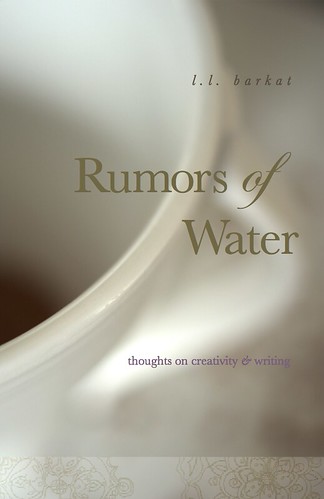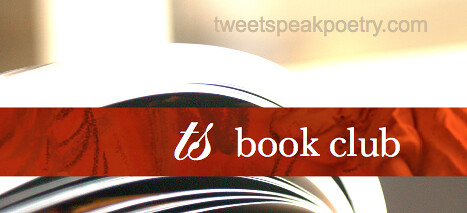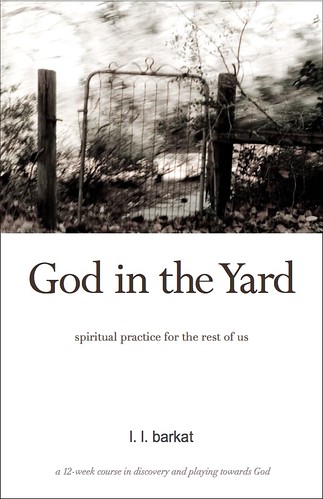Re-storey

You're not buying a product. You're buying a story. This is the essential message of Al Hsu's 5th chapter in The Suburban Christian.
Story is powerful, as Christianne, Charity, and I have been musing. Is it any wonder, then, that product branding is about "storifying things"?
As Christians, we claim to be enamored of a particular story... a story of One who loves the unlovely and gives good gifts to both the "wicked and the righteous."
In light of this, I think it's good to do what Hsu suggests, and, when we buy branded material, to ask ourselves, "What story or narrative am I participating in?" (p.107) He also asks us to consider de-storying things.
I wonder if, in addition, we might want to re-story things that money can't buy... a rocking horse carved by a father's own hands, a garden planted and harvested by a mother's own hands, a fort made of sticks by our children's own hands.
Maybe if we become enchanted by our own stories and the story of God's restoration, we'll be less likely to fall for the superficial stories of Betty Crocker and the Marlboro man.
Love poem book photo, by L.L. Barkat.
Seedlings Invitation: If you write a post related to this post and Link It Back Here, let me know and I'll link to yours.
NEW LINKS TO THIS POST:
Spaghetti's Restoring Community: Sharing Stories, part IIIb
Spaghetti's Restoring Community: Sharing Stories
Al's Branding and Identity
Lynet's Stories
Charity's Branded
L.L.'s Woodstory
Labels: consumerism, life management, Story, Suburban Christian















30 Comments:
You are one wise cookie LL! I wish I could explain my thought in verse so easily!
The notion of narrative as a defining force on our consciousness that shapes the way we view our lives is one of the most interesting central themes of Terry Pratchett's Discworld series (which started as a spoof on fantasy literature and ended up as a platform from which all sorts of things can be viewed from a different angle). Granny Weatherwax, who is one of the best characters in the early novels, has stories as a central paradox to the way she operates: she is always trying to free people from stories, but at the same time, she uses stories herself, all the time, to influence the way people think.
Humanists try to write our own stories, I guess. We know it's dangerous but we think the freedom is important.
Lynet, I wonder how much freedom we really have to write our own stories. I'm realizing that I agree with you on this (as my recent post attests, which you so kindly commented on) . . . and yet I'm remembering your comment from Laura's previous post about how our lives can't help but impact each other's. There's a point at which we're determining or making sense of our own stories, and yet there's another point at which our stories are necessarily affected by -- and therefore written on, to an extent -- by others. Thoughts?
Hey Laura, I'd love to hear you expand more on Hsu's challenge to try destorifying things. What does that mean, what might it look like, and why does he challenge us to do it?
Thanks for the link to my post, by the way! You're kind.
L.L., To find story as part of our lives and of the special things we do does give me some food for thought. We ought to be in kind of a fun, awe and suspense as to being tuned in to see how things turn out, as we know this is all a part and interwoven into God's wonderous story in Jesus.
As usual thanks for the thoughtful, engaging and creative post.
A while back, I did a post on the idea of the Bible being a myth (here), myth not meaning untrue story, but myth as in the identity of a people. I love the idea of story and identity. I love that I'm a character in God's story and that he lets me improv.
Martin... cookies? Yum. Send 'em on over.
Lynet... sounds like a good series. And it reminds me a little of the Flannery O' Connor grandmother character in A Good Man is Hard to Find. I seem to remember that she did the very things she was always trying to keep others from doing (I'll have to reread it to see if I'm saying this right). Anyway, I'm intrigued by the word "danger." What is dangerous about trying to write your own story? And do you think only Humanists have such a desire?
Christianne... he mentions it very briefly. I think the idea is simply to look at the story a product is trying to give you (evaluate the advertising), and maybe debunk it (especially in light of the Christian story). Keeping in mind that advertisers may actually use variations on the very story we so cherish.
Ted... I like that idea of letting the story unfold, and being in awe of the process.
Heather... thanks for the link. I'll try to get to it soon. And, yes, you are great at improv!
Glad you are on the mend!
I love the idea of re-storying! All those lovely things that we did and blessedly some that we even took pictures, of as the kids were growing up - the goofy looking fancy chickens with their green and blue eggs, the first little hands gardens, the massive rows of sunflowers, the handmade cradle the littlest one slept in, the handmade little rocker, the baseball and soccer games. Such things are the most cherished stories of my life - and certainly "Name Brand" for me.
So, thank you for such an insightful and memory invoking post! I may actually have to read this book as you and Charity have spoken so often of it - however, Craver has just handed me JI Packer's Evangelism and the Sovereignty of God - so that is burning a whole in my reading chair first.
The pain is rather chronic; I just keep working to strengthen and then we work to fix whatever that the strenghening causes to rears its ugly head the most loudly.
However, this notion of new "outcroppings" because we have not dealt with the underlying cause is rather novel after so many years of therapy. It seems to me that it models the Hebrews scripture quite nicely. It will be interesting to see how it works its way into my bible study, heart and blog.
Thank you always for reading and for your encouragement.
There's a point at which we're determining or making sense of our own stories, and yet there's another point at which our stories are necessarily affected by -- and therefore written on, to an extent -- by others.
Ah, but there are the facts, and then there is the story we make out of those facts. We can't control everything that happens to us, but we can control the meaning that we assign to events. That's what I meant by 'writing our own story'.
(There is also the complicated lack-of-free-will aspect to this question -- I'd say we don't control the things that cause us to be the sort of person who would assign a particular meaning to events -- but to my mind this is merely a complicated quibble that doesn't change much).
Anyway, I'm intrigued by the word "danger." What is dangerous about trying to write your own story?
Well, first there is the danger in any story; the power that meaning has for good and/or evil can be immense. For example, the story "we are in a battle between good and evil" can be incredibly dangerous if it leads to the notion that extreme measures are necessary to win said battle. And secondly, there is the danger that we won't find a story -- that somewhere in our lives the meaning will slip and we'll fall into the dark abyss where life is worthless.
And do you think only Humanists have such a desire?
Okay, consider me properly called out on that one! Still, religions tend to give people stories -- though I suppose you could say that the adherents sometimes freely choose to accept the story (not necessarily, if they're brainwashingly given it as kids, though). Still, there is often this idea that God will write your story for you, and your job is simply to believe in His meaning and follow His script. You know, "God has a plan for you!" and all that. That's like an assurance that you will have some fixed story given to you -- whereas I would say that the stories we make, ourselves, are the only ones that exist and hence the only ones that count.
Sorry, but I've tagged you for a meme. :p
Love the blog...just dropped by to say hello!
Mo
http://www.mojo-place.blogspot.com/
I like this. What does a purposeful re-making of our story look like? Certainly it affects every aspect of life. The one that comes to my mind now, as a suburban dweller, is the compulsion to over-schedule my children. Sign them up for so many activities, there is no time to simply be. Summer shifts from carefree to burdensome, and we all get too-tired and can't wait for school to begin again.
So many of our friends and neighbors are living this reality. We are purposefully choosing not to, and having a ball! Have I deprived my children of opportunities? I'm not thinking of it that way. I've given my children a gift: summer vacation.
Halfmom... your description is wonderful, enchanting. I guess that part of re-storying is to take these descriptions and make them part of our family narratives. A narrative of love (hence, my love-poem book photo) that we pass on to shape and be shaped.
Lynet... yes. As I have delved into my own "story" and set it down as part of my book, I've been amazed when talking to family that our stories are not the same. I wrote first without any "research," without any discussion with other members. Indeed, for the most part I've left it that way too, because I believe it is okay for our stories to be different, for the very reason you give... we have assigned different meanings to events (and sometimes, this has even affected how we remember things!)
I love your good humor! Being called out. You made me smile. Now, I like how you've expressed that about us stepping into an already written story. That, as you probably noticed in the last post, is an area that all Christians would not agree on. (Remember, Heather is doing improv! See above.)
Haddock... thanks?
Mojo... welcome to Seedlings! How did you find us?
Llama... brava! For bringing a narrative of love that few would consider a love story. That's the thing, when we de-story and re-story, we slow down and ask... is this truly a narrative of love? Or only one that pretends to be?
Now, I like how you've expressed that about us stepping into an already written story. That, as you probably noticed in the last post, is an area that all Christians would not agree on. (Remember, Heather is doing improv! See above.)
Well, if I ever do find good evidence for God, I hope it will be such as to allow a viewpoint like that :)
I like how N.T. Wright expresses it: the Bible is the first three and the fifth act of a five-act play. We are in the fourth act. We don't have a word-for-word script, but we do have to remain true to the first three and following fifth acts.
Lynet... I'm going to venture that this means you are looking?
Heather... I wonder what it means to be true to it.
Lynet... oh, and don't feel you have to answer that question. Just my musings out loud.
No, not looking. But naturally I value openmindedness. I need it for the street cred ;)
This chapter on branding and storying fits right in with the themes we've all been exploring. It is interesting to reflect on the thought processes that lead us toward a certain brand. I have been trying to untangle this brand consciousness in my own life after years of using it to write my story.
I'll be posting my half of the conversation this evening. I'm still climbing back into life after a difficult chapter.
Heather, I love that idea from N. T. Wright. He's so great.
L.L., this is a wonderful wonderful post! I think you know that story is really really important to me.
In fact, it is the way I understand the world. When I look at a painting--even one of Mako's--I try to find the story in it. (For me, the story of Mako's painting was a creation story of his process: making the paper, distilling the colors, letting the canvas work hang in a gallery to set for three years so those water stains developed depth.)
The danger of "telling my own story" is that I am so often dishonest. Not intentionally so. At least that's what I tell myself. I just make up the story I want to be in sometimes, rather than the story I'm actually in.
In some ways, I'm learning that's what prayer is all about. Talking to God and saying, "Hey, tell me your story. And tell me again how I fit in it. Tell me again my part of your story."
Great post! One of your best!
Have a sooper dooper weekend my friend!
Pulling together Lynet's comment about fact versus interpretation of story with Mark's comment on being dishonest with our stories based on the stories we want to believe about ourselves instead, and then swirling in a bit of what my hubby Kirk is learning about leadership in school -- that being, leaders interpret and shape reality for those following their lead -- makes me wonder: are there any guidelines? how does one keep oneself from falling into illusion? how does one determine the interpretive factors for one's life, and the lives of others who are "following"?
Well, the guidelines for little old me as dictated by my upbringing are:
- Stay open. Be aware that there are different stories that people make from events and try to understand them when you can.
- Think critically. This includes whether the story supports the facts (assuming we have evidence one way or the other) first and foremost, and what the likely results of the story are as a secondary consideration.
It helps to:
- Know some history. Know what stories have been used by leaders in the past and know what the results were.
- Do some reading. Dystopias like 'Brave New World' and '1984' aren't pleasant reading, but they certainly make you think. 'The Crucible' is a play that gives an incredible demonstration of how stories can go wrong.
A lot of that stuff is, I suppose, more relevant to political stories than anything else. Personal stories have different rules, I think. You still have to think critically, but you have to be careful not to be too critical because you need your own stories to survive. For me it's sometimes as if I'm trying to reconstruct the platform I'm standing on. Some of it has to go, but I can't get rid of it until I've built something to replace it. It's as important to survive as it is to be 'storied' in the most sensible way.
I guess I like to be as close to the (knowable) truth as possible, as far as the facts go, and I like to try to write the interpretational bits in a way that helps me (and others) to behave well. It's a complicated business.
Thanks, Lynet. I appreciated hearing your perspective -- and very clear one it is, at that!
All this talk about story makes me wonder if story is all we really have to base our lives upon. We have the story of what we fundamentally believe life is "about," and we have the stories that make up our understanding of our place within that larger one.
LL - somehow in trying to rearrange email accounts, I have deleted my own blog. So, I will be back, after a bit but unless blogspot somehow decides to help me, it will need to be back under a different name.
interesting - I was just playing - and it worked - there's just an empty blog there - so, do you know how to, or anyone who would, recover the lost contents?
beautiful photo;beautiful thoughts~
[Gasp!]
Halfmom lost her story?? I clicked on the link because I just couldn't believe it. Don't panic. Take deep breaths, and know that we will be with you regardless of how this turns out.
Halfmom... eek! [right, Craver, I'm breathing] I would go to the Blogger chat board and ask your question. I think this is accessible from the opening page. In the meantime, oh, we will miss your other half. (Hey, what does this mean for someone who's already a Halfmom?)
Christine... thanks!
so - you should all pray that a real person - as surely there are real people behind all this somewhere will receive and take pity on my emails - because they have not as yet - and while they have let me have my name back, they will not let me have the original blog URL back - no can I get them to respond to emails, etc. So, for now, I'm just a voiceless person, stuck finding Panera breads in South Carolina to even log on and see what the rest of you are writing about.
Halfmom... So is the URL already taken by someone else now?
I don't know. You could start from scratch I guess, and hope to reclaim the other one in the future. I have to say that I keep a copy of all my posts and my template on my computer, so I'll have them if ever the blogworld eats mine up. Not so helpful in retrospect, but maybe helpful as you move forward.
Post a Comment
<< Home